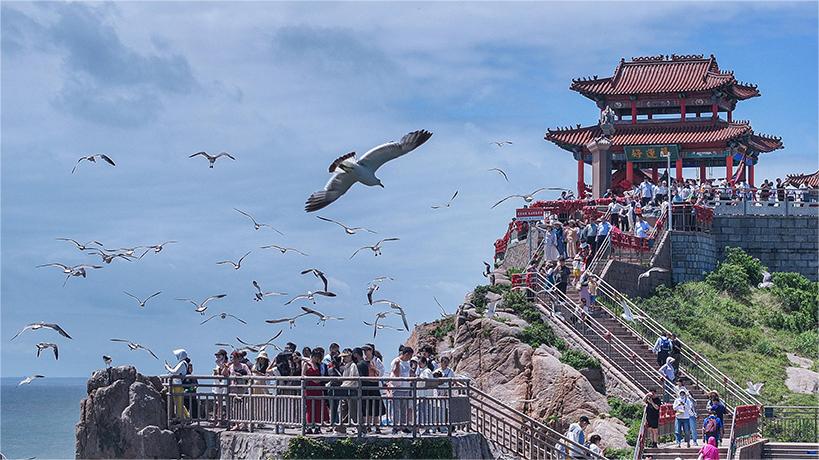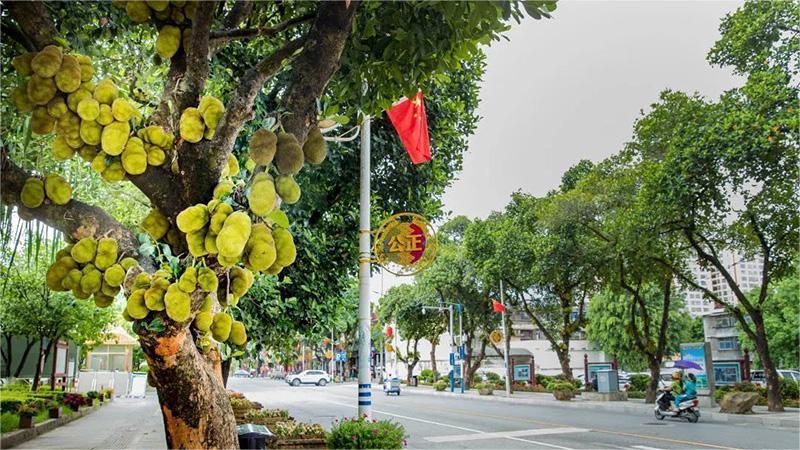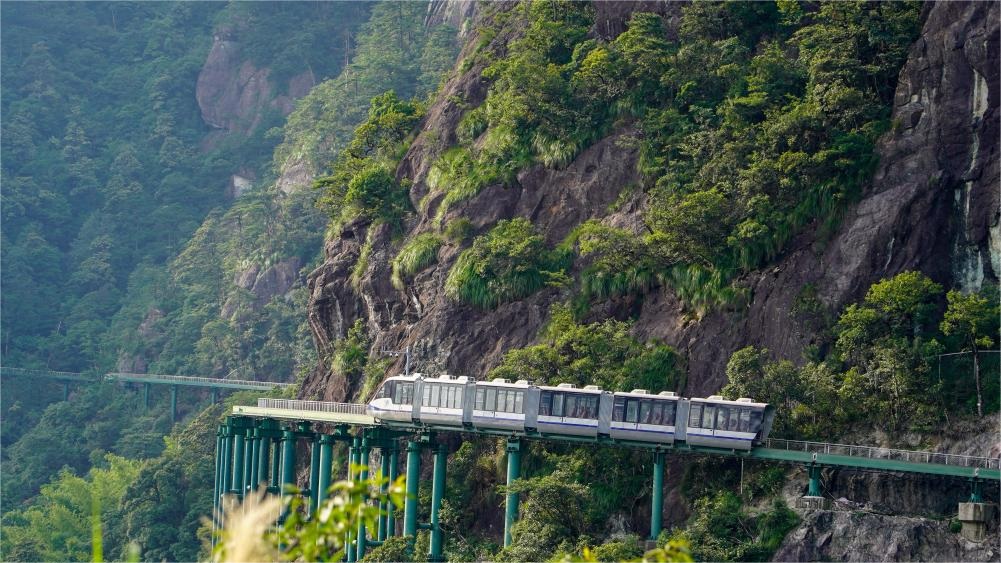U.S. politicians' playing Xizang card a losing game: Tibetologist
BEIJING, July 12 (Xinhua) -- Xinhua News Agency on Friday published an article by Zhang Shigao, director of the Institute of Contemporary Studies at the China Tibetology Research Center.
The article is titled "Attempts by anti-China U.S. politicians to contain China using Xizang is doomed to fail."
Following is the full text of the article:
Recently, the U.S. Congress passed the so-called "Resolve Tibet Act." Michael McCaul, Jim McGovern and others who pushed the bill even visited India's Dharamsala, where they celebrated with the Dalai clique and touted their "unwavering" support for "Tibetan people."
Do these American politicians really care about the people of Xizang? The answer is an obvious no.
They have time and time again played dumb on the real achievements in Xizang and turned a blind eye to the historical fact that Xizang has been a part of China since ancient times: the central government of China has officially exercised administration over Xizang since the Yuan Dynasty (1271-1368). Instead, they favor distorted facts and rumors spread by the Dalai clique, and made all-out attacks on China's Xizang policies. Their purpose is to play the Xizang card to contain and divide China. It belies a "Cold War" mentality and an urge to contain China's development.
A look back at history reveals that the changing dynamics of U.S. manipulation of Xizang issues are in sync with the ups and downs of Sino-U.S. relations. In the 1940s, to uphold the world anti-fascist alliance, the U.S. government recognized the sovereignty of China's then central government over Xizang, and made some efforts to restrain the separatist forces in Xizang. After the end of WWII, especially with the fall of the U.S.-backed KMT regime on the Chinese mainland, the United States made salient changes in its strategy on Xizang. The United States gradually ramped up interference in "Tibetan issues" and attempted to obstruct the peaceful liberation of Xizang by the Chinese People's Liberation Army. The Central Intelligence Agency (CIA) even played a role in plotting the revolt in Xizang, helped the Dalai Lama escape to India, and later supported the Dalai clique's long-term armed harassment of Xizang.
In the 1970s, amid the scramble for global hegemony with the Soviet Union, the United States sought to improve relations with China. After President Richard Nixon's visit to China in 1972, the United States gradually reduced its economic and military support for the Dalai clique, which became a snubbed orphan of the Cold War and had to change its banner from "Tibetan independence" to "the middle way."
After the collapse of the Soviet Union and drastic changes across Eastern Europe in 1989, the United States turned its focus to fomenting "peaceful evolution" in China, using Xizang as a channel. Once again, the United States scaled up support for the Dalai clique, and incited the award of the Nobel Peace Prize to the Dalai Lama. Since 1991, when George H. W. Bush became the first U.S. president to meet the Dalai Lama, there have been 15 meetings between U.S. presidents and the Dalai Lama. In 1997, the "Special Coordinator for Tibetan Issues" was established, and in 2007, the Dalai Lama accepted a "gold medal" from the U.S. Congress, which has also concocted multiple Xizang-related bills including the "Tibetan Policy Act of 2002."
As China has grown in national strength and risen in global status in recent years, the United States has come to regard China as a main strategic competitor. In its attempts to comprehensively suppress China, the United States has more frequently pressured China on issues related to Xizang, Xinjiang, Hong Kong, Taiwan and the South China Sea, stirring up troubles on issues concerning China's core interests. The U.S. Congress has passed an increasing number of Xizang-related bills such as the "Reciprocal Access to Tibet Act of 2018" and the "Tibetan Policy and Support Act of 2020," the contents of which have become increasingly radical. It was precisely in this context that the new bill, initiated by anti-China politicians, was passed.
In reality, the United States' Xizang strategies are nothing more than blatant double standards. Since the establishment of diplomatic relations between China and the United States, the U.S. government has always acknowledged Xizang as a part of China. The U.S. is not justified if it directly meddles with Xizang issues, which are China's internal affairs. Therefore, human right issues in Xizang have been fabricated as a pretext for anti-China politicians in the United States to use Xizang to contain China.
As is well known, old Xizang had a theocratic feudal serfdom system, under which serfs and slaves, accounting for more than 95 percent of the total population, did not have basic human rights. Treated by serf owners as "talking livestock," they suffered extremely harsh exploitation and oppression. Old Xizang was characterized by serious violations of human rights. Under the feudal serfdom system, human rights in Xizang were systematically deprived and trampled upon.
Sixty-five years ago, under the leadership of the Communist Party of China (CPC), Xizang underwent a sweeping democratic reform that liberated millions of serfs. Since then, tremendous changes have taken place in Xizang, and people there have embraced real human rights and freedoms.
Ironically, the remnants of the serf owners, the same group of people who opposed democratic reforms and trampled on human rights, are now hypocritically talking about human rights. Politicians like McCaul and McGovern keep mum on human rights abuses in Xizang under feudal serfdom, and on the Dalai clique's true nature as remnants of the theocratic serf owner class in old Xizang. They remain silent on the significant human rights achievements in Xizang since the democratic reform. This demonstrates their hypocrisy and double standards. They are by no means concerned about human rights in Xizang. Instead, they are playing the Xizang card against China, with the aim of undermining stability in Xizang, as well as in prefectures and counties with large Tibetan populations in provinces of Qinghai, Sichuan, Gansu and Yunnan, and even splitting Xizang from China.
Looking ahead, the U.S. scheme of using Xizang to contain China is bound to fail. China is growing stronger and more dynamic, and has become an important force on the world stage. The Chinese people do not stir troubles, but we never flinch when trouble comes our way. We brook no provocation of anti-China politicians in the United States, and will resolutely oppose their efforts to undermine China's national interests.
In Xizang, it is a popular and unshakable belief that we must remain committed to the CPC leadership, the path of socialism, and the system of regional ethnic autonomy. People of all ethnic groups in Xizang are working in unity with the rest of the country to build a modern socialist China. No one wishes to return to the old Xizang with no freedom and plenty of abuses. No one will sit by and allow anti-China American politicians succeed in their attempts to destabilize Xizang.
The United States itself is facing a welter of problems such as yawning political divisions, worsening social fragmentation and racism. Its image as a "human rights preacher" has long been discredited globally. Despite having passed all these Xizang-related bills and resolutions, the United States can not reverse Xizang's development and stability. Neither will it change the historical fact that Xizang has been a part of China since ancient times.
China's development and the great rejuvenation of the Chinese nation are inevitable. Anti-China politicians in the United States are destined to fail in their attempt to contain China using Xizang. This will only harm China-U.S. relations and ultimately damage the interests of the United States.
Photos
Related Stories
- Former thangka painter turns childhood courtyard into trendy cafe in Lhasa
- Chinese state councilor calls for improved social guarantees in Xizang
- Improving transport makes life more convenient for Xizang residents
- 29 Buddhist nuns awarded "Chi Ram Pa" diploma in China's Xizang
- Highway linking Xizang's largest cities opens to traffic
- China's Xizang witnesses all-around progress in past 65 years
- Chinese scholars slam U.S. act concerning Xizang
- Vintage journey of two foreign tourists in China
- In pics: wild animals in China's Xizang
- Preliminary exam for highest Tibetan Buddhism degree held in Xizang
Copyright © 2024 People's Daily Online. All Rights Reserved.









